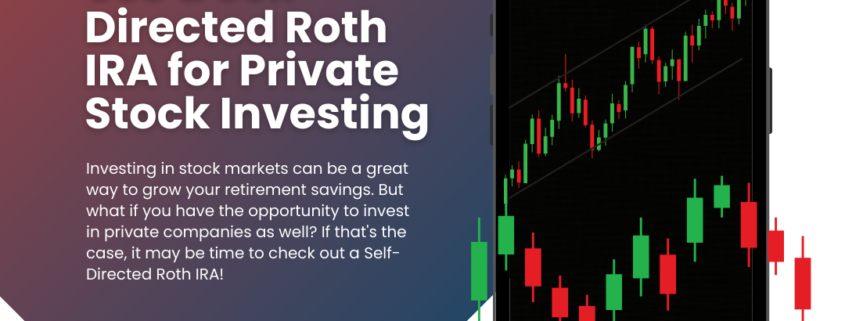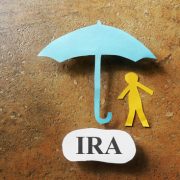Can You Use a Self-Directed Roth IRA for Private Stock Investing?
Is it Putting money in private companies is a powerful way to potentially invest for retirement. Why? Because the old adage “buy low, sell high” has the potential to create astounding returns here. After all, investing in private company stock means you can get in on the “ground floor,” long before a company ever truly takes off. But if you use a Self-Directed Roth IRA to protect those assets and allow them to grow tax-free. Here’s what you’ll need to know.
Private Stock Investing
Investing in Private Companies in a Self-Directed Roth IRA
Investing in stock markets can be a great way to grow your retirement savings and secure your financial future. But what if you have the opportunity to invest in private companies as well? With a Self-Directed Roth IRA, investors can potentially reap higher returns than traditional stock markets, and be compliant with IRS regulations.
The Self-Directed Roth IRA provides a unique opportunity for investors who want to gain access to non-traditional investments. This type of retirement account allows for more flexibility and control over how funds are managed and invested. It is important that investors familiarize themselves with the rules and regulations involved with this type of account prior to investing so they can best utilize the features associated with it. Doing so will help you get the most out of the Roth IRA, which is one of the most potent vehicles for retirement investing there is.
Benefits
Wider Diversification Through a Self-Directed Roth IRA with Private Stock Investing
So, what kind of investments are allowed in a Self-Directed Roth IRA? Generally speaking, most assets that an individual investor would buy on their own are less traditional. Investments like real estate, private company stock, private placements, tax liens, gold or silver coins, and certain types of partnerships. There are also opportunities for venture capital investing which may include seed investments or angel investing into startups.
When considering whether to use a Self-Directed Roth IRA for private stock investing it is important to note that there are certain restrictions. Under IRS rules. For example, investors cannot invest in companies where they or their family members hold an ownership position. They also may not receive benefits from the business venture either directly or indirectly. Additionally foreign companies are not eligible for investment through a Self-Directed Roth IRA even if they operate lawfully within their specific country’s borders.
Investors should be aware that not all custodians offer support when it comes to managing a Self-Directed Roth IRA. This limits choices but also raises the potential of fees associated with those services. Investors should do their due diligence when considering any custodian and make sure they understand all fees charged. They should also research any additional liabilities incurred through the investment decisions made through the account holder’s discretion.
Is it a Beneficial Investment?
Is a Self-Directed Roth IRA for Private Company Investing Right For You?
Overall, utilizing a Self-Directed Roth IRA can potentially provide investors access to higher returns than what is typically available through traditional stocks. They can also offer more control over how funds are managed and invested compared to other retirement accounts like 401ks or IRAs which come with predetermined options from employers or institutions respectively (limited options). As long as the investor is willing to navigate through the specific rules and regulations set forth by the IRS, this could be a beneficial investment for those seeking higher returns than what is available through traditional markets like stocks and bonds.
Interested in learning more about Self-Directed IRAs? Contact American IRA, LLC at 866-7500-IRA (472) for a free consultation. Download our free guides or visit us online at www.AmericanIRA.com.








